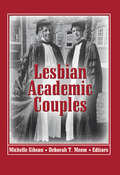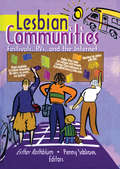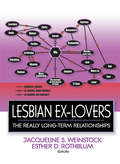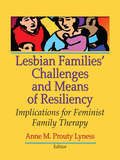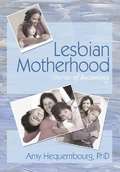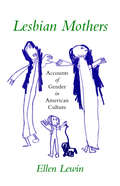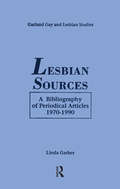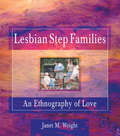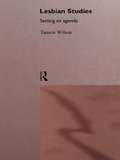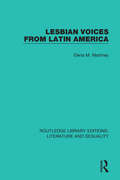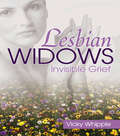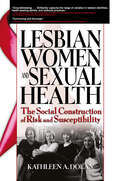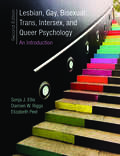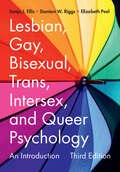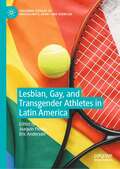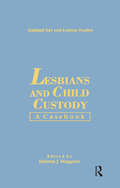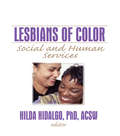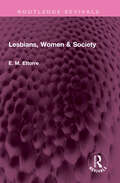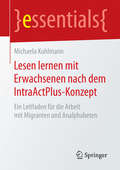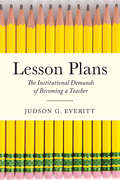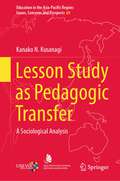- Table View
- List View
Les escoles que canvien el món
by César BonaEl nou llibre de César Bona ens convida a conèixer de primera mà alguns dels casos més meravellosos que estan succeint en l'àmbit educatiu, excel·lents exemples de que l'educació dels nostres fills, la manera d'ensenyar-los, es pot fer d'una altra manera i, el millor de tot: que funciona. Hi ha escoles que estan canviant l'educació. No són a Finlàndia ni a Suècia, són aquí. Unes són rurals i altres públiques, algunes tenen alumnes d'infantil i de primària, altres, a més, de secundària, de batxillerat o d'FP, però totes són «escoles Changemarker» i estan preparades per liderar una autèntica transformació educativa. César Bona ha viatjat a set ciutats i pobles seguint el camí d'algunes de les escoles que lluiten perquè cada nen i cada nena tingui l'oportunitat de convertir-se en un agent de canvi. Aquests centres compten amb alumnes motivats, mestres compromesos i pares còmplices. Escoles excel·lents des d'un punt de vista acadèmic, amb un projecte integral en el qual el respecte, la creativitat, la imaginació, el treball en equip, l'empatia, la interacció amb el barri i amb la societat són el millor camí per completar l'ensenyament de les assignatures tradicionals. L'autor ha entrevistat a mestres, pares i alumnes i ens narra, amb una veu personal i propera, els projectes que estan duent a terme, el que han aconseguit i com tots nosaltres, sigui quina sigui la nostra edat, podem aportar-hi molt. No hem d'oblidar que els nens no són els adults del demà, són els habitants del present. Si reforcem la seva creativitat natural, la seva imaginació desbordant, i treballem l'empatia, la solidaritat i el respecte, poden canviar el món. No en el futur, sinó ara. Perquè una nova educació no és un somni, és una realitat.
Lesbian Academic Couples
by Michelle GibsonLearn how lesbian couples deal with political, social, and legal issues related to their relationships-and their professions Lesbian Academic Couples is a collection of writings by scholars who examine-in theory and in narrative-issues faced by partners working in the academic field, including the politics of spousal hiring, discrimination in hiring practices, collaboration between partners, long-distance relationships, team teaching, and job sharing. This unique book presents firsthand accounts from senior faculty with lengthy credentials in LGBT scholarship who have been able to land academic positions not compromised by outing, from established academics who have been outed to negative effect, from junior scholars with a queer specialty, and from faculty whose work is constantly shifting and unpredictable. The format of Lesbian Academic Couples is unique. Authors well known to the lesbian communities in the United States, Canada, and Australia, present essays that "converse" with one another, offering opposing positions that represent a diversity of approaches on vital issues. The book offers candid accounts of the experiences of lesbian couples fortunate enough to work in supportive academic environments and from those discouraged from being out on campus or from doing academic work in the area of LGBT studies. This groundbreaking book is especially timely given current lawsuits and legislation involving civil unions and domestic partner benefits, enforcement of domestic violence statutes, and the rights of unmarried older couples.Lesbian Academic Couples includes the stories of couples who: achieved scholarly success and a reaffirmed relationship were separated when they couldn&’t find viable academic positions in the same geographical area abandoned the security of tenured positions for the sake of their relationship were professionally marginalized because of their same-sex, mixed-race relationship wrote under the pen name "Michael Field" in the nineteenth centuryIn addition, Lesbian Academic Couples examines the critical issues of: state sanctioning through marriage spousal hiring package plans sexual orientation nondiscrimination policiesLesbian Academic Couples have existed, as long as there have been female academics. This powerful book gives voice to their successes and struggles.
Lesbian Activism in the (Post-)Yugoslav Space: Sisterhood and Unity
by Bojan Bilić Marija RadomanThis book intertwines academic and activist voices to engage with more than three decades of lesbian activism in the Yugoslav space. The empirically rich contributions uncover a range of lesbian initiatives and the fundamental, but rarely acknowledged, role that lesbian alliances have played in articulating a feminist response to the upsurge of nationalism, widespread violence against women, and high levels of lesbophobia and homophobia in all of the post-Yugoslav states. By offering a distinctly intergenerational and transnational perspective, this collection does not only shed new light on a severely marginalised group of people, but constitutes a pioneering effort in accounting for the intricacies – solidarities, joys, and tensions – of lesbian activist organising in a post-conflict and post-socialist environment. With a plethora of authorial standpoints and innovative methodological approaches, the volume challenges the systematic absence of (post-)Yugoslav lesbian activist enterprises from recent social science scholarship.Lesbian Activism in the (Post-)Yugoslav Space will be of interest to students and scholars across a range of disciplines, including gender studies, history, politics, anthropology, and sociology.
Lesbian Communities: Festivals, RVs, and the Internet
by Esther D Rothblum Penny Sablove"I had just witnessed women who shingled their own roofs, drove eighteen-wheeler trucks, and built their own houses-as well as kept them clean and cooked a damn good meal. On women&’s land I am a first-class citizen, I&’m treated as an equal. I now see the world with righteous anger and hope. Living in womyn&’s community has provided that lens for me."-Elizabeth Sturrus, third wave feministOne of the driving forces in the lives of many lesbians is the search for community in a society that favors heterosexuality and often turns a cold shoulder toward women who love women. Lesbian Communities: Festivals, RVs, and the Internet takes you inside flourishing lesbian communities-physical, spiritual, and virtual (online)-that provide practical help, emotional support, and much-needed outlets for creative expression. Exploring communities functioning in harmony with general American society as well as separatist groups, "festival communities" which form for short times annually, and informal online groups offering meaningful communication to physically isolated lesbians, this book offers a ray of light to those whose search is still ongoing. It also provides much-needed analysis of the current state of lesbian communities-some decades old now-for educators, researchers, and social scientists. In Lesbian Communities: Festivals, RVs, and the Internet, Susan Krieger revisits the vibrant community she first explored in The Mirror Dance. An African American member of Old Lesbians Organizing for Change shares the details of her search for a cooperative, caring space for aging lesbians-and what led to her eventual decision to create this space herself. And one of the founders of Hallomas, a back-to-the-land community that has survived in northern California since the late 1970s, reflects on that unique community&’s birth and life-with 13 photographs and illustrations. The book also bears witness to a life-changing encounter and dialogue between second-wave feminists from the woman's land collective of Arcadia and third wave feminists. You&’ll also learn about: the birth, joys, and tribulations of an online community that becomes physical each year at the Michigan Womyn&’s Music Festival the accidental birth of a lesbian community in isolated and fundamentalist-dominated West Texas the international online lesbian parenting community called MOMS (affectionately known as Dykes and Tykes)-how it began, what belonging to this community provides for its members, and a look toward the future the debate on inclusiveness versus exclusiveness (of bisexual women, transgender people, and the male children of lesbians) in lesbian communities the current decline of availability and dilution of the purity of lesbian-only space-and the rise of segregation (by social class and financial status) and oppression within the lesbian community the current plight of lesbian bookstores, which since the 1970s have served not only as gateways to a multitude of lesbian communities, but as the centers of lesbian communities themselves the online experience of lesbians searching for community in Japan the issues facing Jewish lesbians and the formation of Nice Jewish Girls, a Montreal group for anyone who identifies as a lesbian, bisexual, or queer woman and their non-Jewish partners and friends the power of myth and mythmaking to help women regain lost strength and reclaim lost history From the efforts of back-to-the-land groups creating "wimmin&’s space" to life in modern residential/retirement settings, this book explores the places created by and for lesbians. Photos and illustrations bring these women and their communities to life. Lesbian Communities: Festivals, RVs, and the Internet w
Lesbian Ex-Lovers: The Really Long-Term Relationships
by Esther D Rothblum Jacqueline Weinstock"We have earned a certain place in each other&’s lives, and in the best of times we can rest on what we have made together." Lesbian Ex-Lovers: The Really Long-Term Relationships examines the need for the development of better understanding and more critical analysis of lesbian ex-lover relationships. This eye-opening look into the minds and hearts of women offers personal insight into the possibilities for and potential pitfalls of lesbian ex-lover relations. This book contains personal stories, fictional accounts, poetry, and theoretical analyses of the frequency and significance of ex-lovers at different stages in a relationship. Topics of interest in Lesbian Ex-Lovers include: the roles ex-lovers play in our lives ex-lovers as contexts for change and development how we continue to be influenced by ex-lovers letting go and moving on ex-lovers as current friends and family themes of betrayal and loss of faith reconstructing friendships and community the mystique of the ex-lover friend/family connections among lesbian ex-lovers "Rather than totally scrap a relationship, we recycle it-from lover to ex-lover to friend in a relatively short half-life." Lesbian Ex-Lovers is the only book in print that explores how a lesbian&’s ex-lovers impact her subsequent romances and lifestyle. This special collection adds a new dynamic to the current literature for and about the lesbian community. Lesbian Ex-Lovers offers advice, anecdotes, and interpretations from such authors, poetesses, and artists as: Michelle Gibson, PhD-educator and editor of Femme/Butch: New Considerations of the Way We Want to Go- who says goodbye to her lover in a sad, passionate elegy Marny Hall-Psychotherapist, editor of the anthology Sexualities, and author of several books, including The Lavender Couch: A Consumer&’s Guide to Psychotherapy for Lesbians and Gay Men-who muses on the unique bonding between lesbians and their ex-lovers, lending a mystique that surrounds the lesbian lifestyle Alison Bechdel-creator of the comic strip Dykes to Watch Out For-who presents a humorous comic strip thanking her former lovers for teaching her about herself Jane Futcher-newspaper reporter and author of three novels-who uses a chapter in her novel to illustrate the tensions that can occur when ex-lovers choose to remain friends, especially when those bonds provoke jealousy in both current and ex-lovers Renny Christopher-educator and award-winning poetess-who expresses her love, loss, and regret in three poems about her ex-lover and much more!
Lesbian Families' Challenges and Means of Resiliency: Implications for Feminist Family Therapy
by Anne M. Prouty LynessAn inside look at the unique challenges of the lesbian experienceLesbian Families&’ Challenges and Means of Resiliency: Implications for Feminist Family Therapy is a unique collection of interdisciplinary feminist examinations of the resiliency of lesbian couples and families. Leading feminist researchers and clinicians discuss parenting within lesbian families, with a focus on personal resiliency. These thought-provoking and insightful articles address the challenges of having and raising children in a society that struggles to accept alternative family structures.Lesbian Families&’ Challenges and Means of Resiliency examines a wide range of issues facing lesbian couples, with a special focus on parenting and couple violence. The book&’s contributors examine the unique challenges of lesbian and gay parenting; adversities facing lesbian parents and the coping methods they employ; violence among lesbian couples and the lesbian community&’s response to domestic violence; and the application of feminist theory to validate, strengthen, and promote resiliency in lesbian couples. The book also includes interviews with single or partnered lesbians who had children through adoption, artificial insemination, or a previous relationship.Topics examined in Lesbian Families&’ Challenges and Means of Resiliency include: parenting artificial insemination lesbian family therapy family law couple violence lesbian community feminist research feminist couple therapy and much moreLesbian Families&’ Challenges and Means of Resiliency is a vital professional aid for psychotherapists, family therapists, psychologists, social workers, and counselors. It&’s an equally valuable resource for academics working in family studies, women&’s studies, queer studies, gender studies, and sociology.
Lesbian Motherhood: Stories of Becoming
by Amy HequembourgA unique practical application of poststructuralist theory to lesbian mothers’ narratives, Lesbian Motherhood: Stories of Becoming analyzes the personal stories of 40 lesbian mothers to discover the complex ways their sense of self is constructed in the current legal, political, and social climate. These intimate narratives are examined by using Gilles Deleuze and Felix Guattari’s conceptual framework to understand subjectivities by focusing on the many flexible lines of movement that constitute subjectivities, or ‘becomings.’ This unique source reveals deep insight into a lesbian's construction of self through her stories about her own sexuality, parenting, and other experiences in becoming a mother. Lesbian Motherhood: Stories of Becoming challenges the assimilation/resistance perspective typically expressed by scholars of lesbian motherhood. Qualitative interviews reveal startling new perspectives to lesbian mother subjectivities viewed within the context of the legal, political, and social areas that seek to define and regulate contemporary family life. This powerful source explores in detail the discursive strategies through which lesbian subjectivities are created and recreated. Deleuze and Guattari’s concept of ‘becoming’ provides a valuable framework for analyzing the discursive strategies employed by those participating in this study. Lesbian Motherhood: Stories of Becoming offers insightful, powerful information that is indispensable to GLBT scholars, and social theorists.
Lesbian Mothers: Accounts of Gender in American Culture (The Anthropology of Contemporary Issues)
by Ellen LewinWithin a society that long considered "lesbian motherhood" a contradiction in terms, what were the experiences of lesbian mothers at the end of the twentieth century? In this illuminating book, lesbian mothers tell their stories of how they became mothers; how they see their relationships with their children, relatives, lovers, and friends and with their children’s fathers and sperm donors; how they manage child-care arrangements and financial difficulties; and how they deal with threats to custody. Ellen Lewin’s unprecedented research on lesbian mothers in the San Francisco area captured a vivid portrait of the moment before gay and lesbian parenting moved into the mainstream of U.S. culture. Drawing on interviews with 135 women, Lewin provided her readers with a new understanding of the attitudes of individual women, the choices they made, and the texture of their daily lives.
Lesbian Sources: A Bibliography of Periodical Articles, 1970-1990 (Garland Gay and Lesbian Studies #9)
by Linda GarberFirst published in 1993. Routledge is an imprint of Taylor & Francis, an informa company.
Lesbian Step Families: An Ethnography of Love
by Ellen Cole Esther D Rothblum Janet M WrightLesbian Step Families: An Ethnography of Love explores five lesbian step families’definitions of the step parent role and how they accomplish parenting tasks, cope with homophobia, and define and interpret their experiences. An intensive feminist qualitative study, the book offers guidelines for counselors and lesbian step families for creating healthy, functioning family structures and environments. It is the first book to concentrate exclusively on lesbian step families rather than on lesbian mothering in general.In Lesbian Step Families: An Ethnography of Love, you’ll explore in detail the different kinds of step relationships that are developed and what factors may lead to the different types of step mothering in lesbian step families. The book helps you understand these relationships and parent roles through in-depth discussions of: how a step mother and legal mother who live together negotiate and organize parenting and homemaking tasks how members of lesbian step families define and create the step mother role strategies family members use to define and cope with oppression how sexism is transmitted within the family and how mothering may limit and/or contribute to female liberation the opinions and viewpoints of the children of these families The findings in Lesbian Step Families: An Ethnography of Love challenge traditional views of mothering and fathering as gender and biologically based activities; they indicate that lesbian step families model gender flexibility and that the mothers and step mothers share parenting--both traditional mothering and fathering--tasks. This allows the biological mother some freedom from motherhood as well as support in it. With insight such as this, you will be prepared to help a client, a loved one, or yourself develop and maintain healthy family relationships.
Lesbian Studies: Setting An Agenda
by Tamsin WiltonNeither women's studies nor lesbian and gay studies offers an adequate theoretical or political base for lesbian scholarship. Lesbian Studies: Setting and Agenda aim to promote lesbian studies as an academic and political approach to both gender and the erotic, and to clarify the damaging influence of heterosexism across a range of disciplines. Drawing on feminism and queer theory, Tamsin Wilton argues that `lesbian' is a theoretical position which must be widely available in order to challenge the dominance of the heterosexual perspective. Engaging with theoretical and political debates, the book moves beyond its role of setting an agenda for lesbian studies into a wider role as resource and catalysts for anyone interested in gender and the erotic.
Lesbian Voices From Latin America (Routledge Library Editions: Literature and Sexuality)
by Elena M. MartínezIn spite of the attention that Latin American women writers have attracted in recent years, a book dedicated exclusively to those writers whose work primarily articulates a lesbian perspective was until now missing. The purpose of this book, first published in 1996, is to bring attention to and examine the articulation of lesbian themes, motifs and issues in the works of these writers. It aims to study the problems pertaining to the specific literary representations of lesbianism and to examine the dimensions of a lesbian view in the works. By undertaking the study of the works of these women writers, this book contributes to the recognition and legitimization of a lesbian literary discourse.
Lesbian Widows: Invisible Grief
by Victoria WhippleThe unseen issues of grief and discrimination-lesbians becoming widows The death of a life partner poses unique challenges for lesbians. Lesbian Widows: Invisible Grief reveals the touching and very personal stories of twenty-five women, including the author, who were widowed at a young age and forced to create a new life without their life partners. The book follows the widows from the time the couple met, to the time when one of the partners died, and beyond, to show how the surviving partner coped with her loss.Many lesbians feel that the intimacy felt between two women in love goes deeper than what can be experienced by heterosexual partners. Lesbian Widows: Invisible Grief reveals themes common to all these women&’s experiences while offering practical advice about coping techniques and resources for support. The widows discuss their efforts to create funerals and memorial services, give their accounts of the overwhelming grief throughout the first two years, and explain the legal and financial discrimination they encountered. The author provides a chapter specifically for caring family and friends, another chapter for professionals working with this sensitive population, and a bibliography of helpful coping resources.Lesbian Widows: Invisible Grief explores the topics of: caregivers/caretaking death and dying grief journeys the similarities and differences between lesbian and married widows the lack of support services for lesbian widows the legal and financial discrimination against lesbian widows the effect of being "in" or "out" on grief recovery the issues faced by widows in starting new relationships spirituality gay marriageLesbian Widows: Invisible Grief provides an insightful look into the grieving and recovery process, inspiring hope with the knowledge that others have survived this tragedy. This moving book is an essential resource for lesbians, friends and family of lesbians, mental health professionals, medical professionals, psychiatrists, LGBT health providers, feminist and lesbian organizations, and anyone involved with grief training programs such as hospice.
Lesbian Women and Sexual Health: The Social Construction of Risk and Susceptibility
by R Dennis Shelby Kathleen DolanInterviewer: Where did you find out how to have safe lesbian sex?Val: I found out in jail.Why do so many lesbian women engage in sexual behavior that puts their health, even their lives, at risk? Many know they&’re at risk, yet somehow feel safe enough to behave as if there is no reason to practice safe sex. Lesbian Women and Sexual Health: The Social Construction of Risk and Susceptibility examines how lesbian women perceive their level of risk for HIV and other sexually transmitted infections (STIs). It describes how their perceptions of risk and susceptibility are shaped by factors such as sexual identity, cultural themes, and community knowledge-and how those perceptions impact on the very real HIV/STI risks that lesbian women face. The genesis of Lesbian Women and Sexual Health: The Social Construction of Risk and Susceptibility lies in Kathleen Dolan&’s exploratory study of this under-researched area, in which 162 structured interviews and 70 in-depth interviews were conducted with women who self-identify as lesbians. What these women have to say will inform, educate, and probably surprise you. Tables and figures make complex data easy to access and understand.Lesbian women construct and label their identities and actions in complex ways that may lead to risky behavior. In the words of the women surveyed-and in Dr. Dolan&’s insightful commentary-this book explores the ways in which lesbian women construct their perceptions of risk and susceptibility to seek answers to questions that include: Do many lesbian women see themselves, to an extent, as immune to HIV contraction? How does their self-constructed sense of risk and susceptibility lead to making dangerous choices? Why, in spite of their professed willingness to engage in protective actions, do many lesbians not actually do so? Why do many lesbian women, and some of the health care professionals who serve them, feel that pap smears are not necessary for women who have sex only with other women-and what are the consequences of this opinion? What is the relationship between drug/alcohol use and risky sexual behaviors in lesbian women?Lesbian Women and Sexual Health: The Social Construction of Risk and Susceptibility is an important resource for women&’s/lesbian health advocates, health care professionals, and courses in gay/women&’s/medical studies. It addresses gaps in the existing research to enhance our understanding of the physical and mental health status of lesbian women, of risk factors and protective actions regarding HIV and STIs, and of the conditions for which protective actions actually reduce risk. Use it to update your knowledge of this under-studied area at the intersection of physical, emotional, and sexual health.
Lesbian, Gay, Bisexual, Trans, Intersex, and Queer Psychology: An Introduction
by Sonja J. Ellis Elizabeth Peel Damien W. RiggsThe second edition of this award-winning textbook provides an accessible and engaging introduction to the field of lesbian, gay, bisexual, transgender, intersex, and queer psychology. Comprehensive in scope and international in outlook, it offers an integrated overview of key topical areas, from history and context, identities and fluidity, families and relationships, to health and wellbeing. The second edition has been extensively revised to address substantial developments and emerging areas, such as people born with intersex variations, transgender and non-binary genders, intersectionality, and gender-diverse children. It also includes new pedagogical features to support learning and to facilitate discussion and reflection, with feature boxes throughout that explain important concepts, provide concise overviews of cutting-edge research, and offer first-person narratives that bring topics to life. This pioneering textbook is an essential resource for undergraduate courses on sex, gender, and sexuality in psychology and related disciplines, such as sociology, health studies, social work, education, and counselling.
Lesbian, Gay, Bisexual, Trans, Intersex, and Queer Psychology: An Introduction
by Sonja J. Ellis Damien W. Riggs Elizabeth PeelThe third edition of this award-winning textbook provides an accessible and engaging introduction to the field of LGBTIQ+ psychology. Comprehensive in scope and international in outlook, it offers an integrated overview of key topical areas, from history and context, identities and fluidity, families and relationships, to health and wellbeing. This third edition includes updates across all chapters that provide a greater focus on diversity and utilize new terminology throughout to reflect changes in the field. It addresses recent developments in the field of trans studies, and explicitly references emerging work around pansexuality and asexuality. An entirely new chapter focuses on a diversity of topics receiving increased attention including LGBTIQ+ people in foster care, LGBTIQ+ refugees, disabled people accessing services, and trans and intersex people in sport. The fallout of increasing far-right extremism in Europe and America is also discussed. This groundbreaking textbook is an essential resource for undergraduate courses on sex, gender and sexuality in psychology and related disciplines, such as sociology, health studies, social work, education and counselling.
Lesbian, Gay, and Transgender Athletes in Latin America (Palgrave Studies in Masculinity, Sport and Exercise)
by Eric Anderson Joaquín PiedraThis edited volume draws upon work from a wide range of established and emerging international scholars to provide an interdisciplinary analysis of sport’s complex relationship with masculinity. With a particular focus on Latin America, it examines the changing relationship between a range of contemporary sport and sexuality and gender expression, as related to lesbian, gay and/or trans athletes. Experts from Spain, Argentina, Brazil, Mexico, and Colombia provide historical, sociological and anthropological perspectives on heteronormativity, masculinity, gender identity, sexual orientation, and the gender binary as they relate to sports clubs, Mexican martial arts, football, softball, sports media, games, and physical education. It will be invaluable to scholars and students in the fields of Gender Studies, Queer Studies, Sports Studies, and Men’s Studies.
Lesbians & Child Custody: A Casebook (Garland Gay and Lesbian Studies)
by Dolores J. MaggioreThis work represents a collection of the most pertinent writing of the past fifteen years in the United States and Canada on the topic of lesbians and child custody. Articles were selected on the basis of their relevance, succinctness, and representativeness of the various aspects of child custody involving lesbians. Some of the original psychological studies comparing lesbian mothers to heterosexual mothers were sacrificed in favor of the piece by Patricia Falk, a thorough review of the psychological literature. For others, the length of the manuscript was prohibitive as was the case with the thorough, step-by-step Lesbian Mothers Litigation Manual by Donna Hitchens and Roberta Achtenberg of the National Center for Lesbian Rights.
Lesbians of Color: Social and Human Services
by Hilda HidalgoBroaden your understanding of lesbians of color, their perspectives, and their needs from a human services point of view. Lesbians of Color: Social and Human Services helps you understand the ways in which lesbians of color perceive important issues related to their oppression and discrimination by the dominant social service community. The authors’personalized accounts graphically depict the deep-seated impacts of society’s racism, sexism, and homophobia. This insightful book suggests effective ways of changing detrimental practices and agency policies that perpetuate oppression and discrimination, and it enhances your interactions with lesbians of color. Chapters build on “feminist standpoint theory,” a theory of inquiry enlightened by authors’firsthand knowledge that helps you move from an intellectual to an empathic grasp of the points made by each author. The use of standpoint theory gives you a different way of gaining insight and understanding of the experiences of lesbians of color. It acts as a springboard for valuing and celebrating the experiences and perspectives of lesbians of color so you can, in turn, provide more sensitive and effective services to members of this population. Among the topics explored in Lesbians of Color are: specific ways white practitioners should behave to demonstrate their sensitivity and respect for lesbians of color insight as to how “need perceptions” and “problem diagnosis” varies when the practitioner listens to and understands lesbians of color specific identity issues that affect the emotional well-being of adopted lesbians visibility and activism as contributors to the mental health of lesbians of color how visibility and activism are essential in creating positive changes in policies and practices for lesbians of colorThis volume is useful for professionals involved in direct service practice with lesbian clients and for administrators of social service agencies. The book is also a helpful guide for educators in professional preparation programs who must introduce students to issues related to lesbians of color.
Lesbians, Women & Society (Routledge Revivals)
by E M EttorreFirst published in 1980, Lesbians, Women and Society presents an analysis of lesbianism as a phenomenon that developed from a ‘personal problem’ or ‘individual deviance’ to a social movement with political ambitions. Social lesbianism, an important concept introduced in the text, refers to the emergence of a public expression of lesbianism and is a stage in the process of establishing a lesbian group identity. It thrusts the issue into the public eye, and lends vitality to society’s awareness. Two groups of ‘social lesbians’ are visible: those fearful of change who cling to traditional and social views, ‘sick but not sorry’; and those who wish to challenge such traditional views in favour of a more public approach, ‘sorry, but we’re not sick.’ But regardless of their relationships to the dominant sexual ideology, as a group, ‘social lesbians’ threaten the structure of power in society. This critical analysis thus challenges many people’s views of lesbianism, and points out to the uninformed observer the complexities which are involved in the contemporary lesbian experience. This book will be of interest to students of sociology, gender studies, feminist theory, and sexuality studies.
Lesen lernen mit Erwachsenen nach dem IntraActPlus-Konzept: Ein Leitfaden für die Arbeit mit Migranten und Analphabeten (essentials)
by Michaela KuhlmannMichaela Kuhlmann stellt in diesem essential das IntraActPlus-Konzept zum Lesen und Rechtschreiben lernen vor. Urspr#65533;nglich f#65533;r Kinder entwickelt, zeigt die Autorin, dass es auch in der Arbeit mit Jugendlichen und Erwachsenen erstaunliche Erfolge hervorbringt. Sie beschreibt, was es zu beachten gilt, wenn Erwachsene unterschiedlichster Herkunft nach diesem Konzept unterrichtet werden. Das essential ist aus einem ehrenamtlichen Alphabetisierungskurs f#65533;r 19 Fl#65533;chtlinge in der VHS entstanden. Die Teilnehmer konnten weder Deutsch sprechen noch verstehen. Eine Verst#65533;ndigung war kaum m#65533;glich.
Less Hustle, More Happy: Be seen, valued and fulfilled at work without selling your soul
by Claire SeeberA disengagement epidemic is costing workplaces globally $8.8 trillion per year, with $218 billion of that in Australia. Employees are searching for answers on how to operate in the post-COVID working world in a way that feels right for them. They don' t need more information; they need practical direction on how to apply their knowledge in skills that are relevant. They need it shared in a way that doesn' t feel as if their mum is telling them what to do but, instead, as if a friend is brainstorming with them in a way that makes them feel heard, seen, valued and understood. Less Hustle, More Happy is packed with real insights, practical strategies, accessible tools, and a solid punch of laugh-out-loud moments where Claire Seeber shares some of her own career ‘ facepalm' stories. She distils her knowledge into a comprehensive blueprint that addresses the evolving challenges of today's professional landscape in a way that feels liberating, not stifling. This book is for ambitious individuals who know there must be more to a successful career than just working harder. It is a ‘ how to' guide to get you heard, seen, noticed and valued in your workplace without selling your soul!
Lesson Plans: The Institutional Demands of Becoming a Teacher
by Judson G. EverittIn Lesson Plans, Judson G. Everitt takes readers into the everyday worlds of teacher training, and reveals the complexities and dilemmas teacher candidates confront as they learn how to perform a job that many people assume anybody can do. Using rich qualitative data, Everitt analyzes how people make sense of their prospective jobs as teachers, and how their introduction to this profession is shaped by the institutionalized rules and practices of higher education, K-12 education, and gender. Trained to constantly adapt to various contingencies that routinely arise in schools and classrooms, teacher candidates learn that they must continually try to reconcile the competing expectations of their jobs to meet students’ needs in an era of accountability. Lesson Plans reveals how institutions shape the ways we produce teachers, and how new teachers make sense of the multiple and complicated demands they face in their efforts to educate students.
Lesson Study as Pedagogic Transfer: A Sociological Analysis (Education in the Asia-Pacific Region: Issues, Concerns and Prospects #69)
by Kanako N. KusanagiThis book examines education transfer, specifically focusing on pedagogic transfer, and analyzes what happens when lesson study is introduced into foreign contextual settings. Lesson study, a professional development approach that originated in Japan 150 years ago, has been widely considered one of the best practices for collaborative professional development. There is an underlying assumption behind education transfer that when “best practice” is transferred to another country, it will generate a similar effect and improve schooling quality. Since pedagogic practice is socially constructed, the best practice in one setting may not be meaningful in another contextual setting. This book makes a unique contribution to the field of comparative education by offering a sociological examination of why pedagogic transfer often fails to bring expected benefits. It is comprised of three parts. Part I, ”Pedagogic Transfer and Lesson study,” provides contextualized analysis of lesson study in Japan and abroad and presents how the meaning of practice is always reinterpreted against the local educational context. Part II presents a sociological analysis of Indonesian teachers’ practice based on ethnographic fieldwork. It conceptually analyses the nature of the teacher community and their practice and is presented as “teacher strategies.” The concept showed that teacher culture and practice are not fixed but constantly negotiated within the institutional setting.Part III, “Sociological Understanding of Pedagogic Transfer,” builds on the analyses in Part I and II and provides a theoretical understanding of the issue of pedagogic transfer. Professional responsibilities of teachers, collegiality, and teaching expertise in Japan and Indonesia are compared to understand how the meaning of lesson study was reconstructed in the Indonesian setting. In conclusion, recommendations for an alternative approach to professional development are offered.
Lessons Learned from the Fukushima Nuclear Accident for Improving Safety and Security of U.S. Nuclear Plants: Phase 2
by Engineering Medicine National Academies of SciencesThe U.S. Congress asked the National Academy of Sciences to conduct a technical study on lessons learned from the Fukushima Daiichi nuclear accident for improving safety and security of commercial nuclear power plants in the United States. This study was carried out in two phases: Phase 1, issued in 2014, focused on the causes of the Fukushima Daiichi accident and safety-related lessons learned for improving nuclear plant systems, operations, and regulations exclusive of spent fuel storage. This Phase 2 report focuses on three issues: (1) lessons learned from the accident for nuclear plant security, (2) lessons learned for spent fuel storage, and (3) reevaluation of conclusions from previous Academies studies on spent fuel storage.

